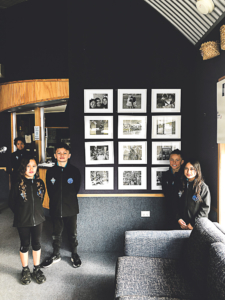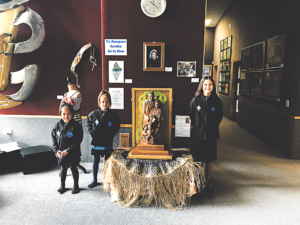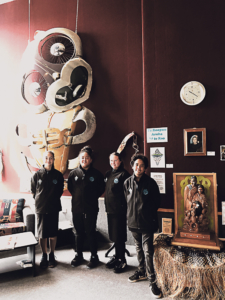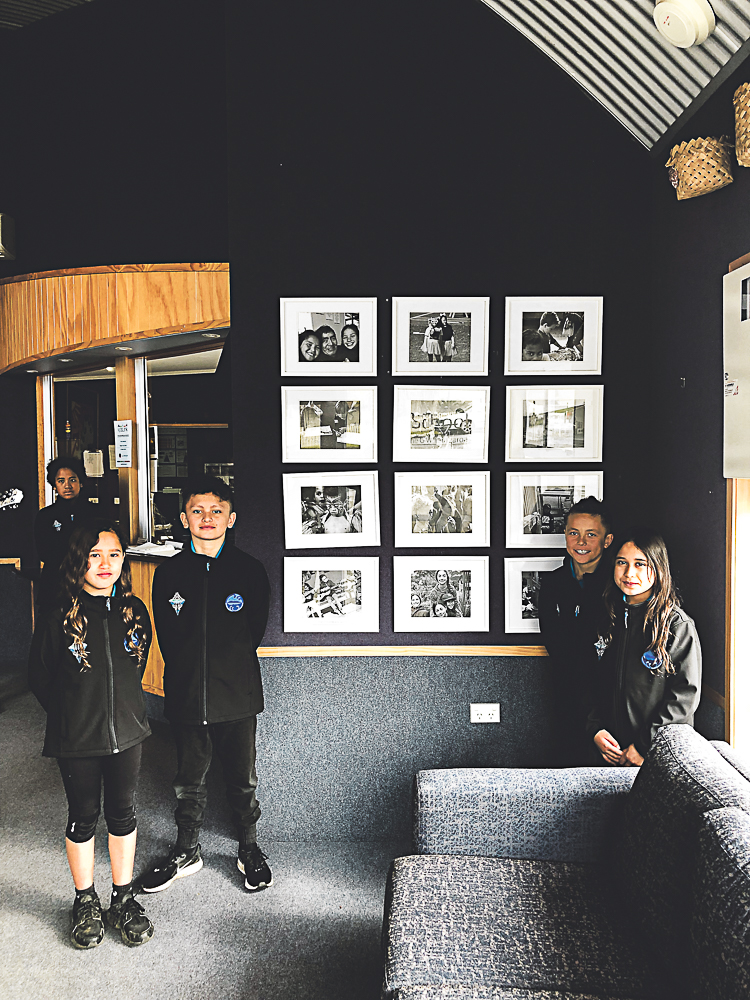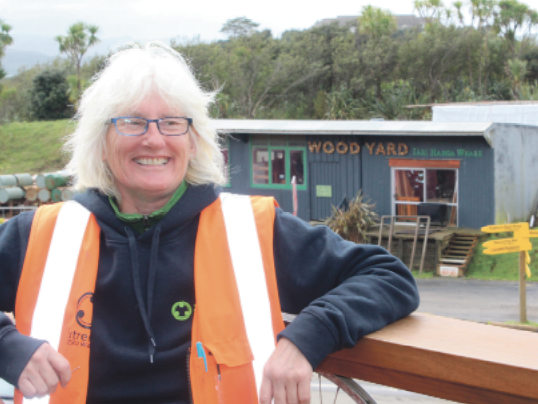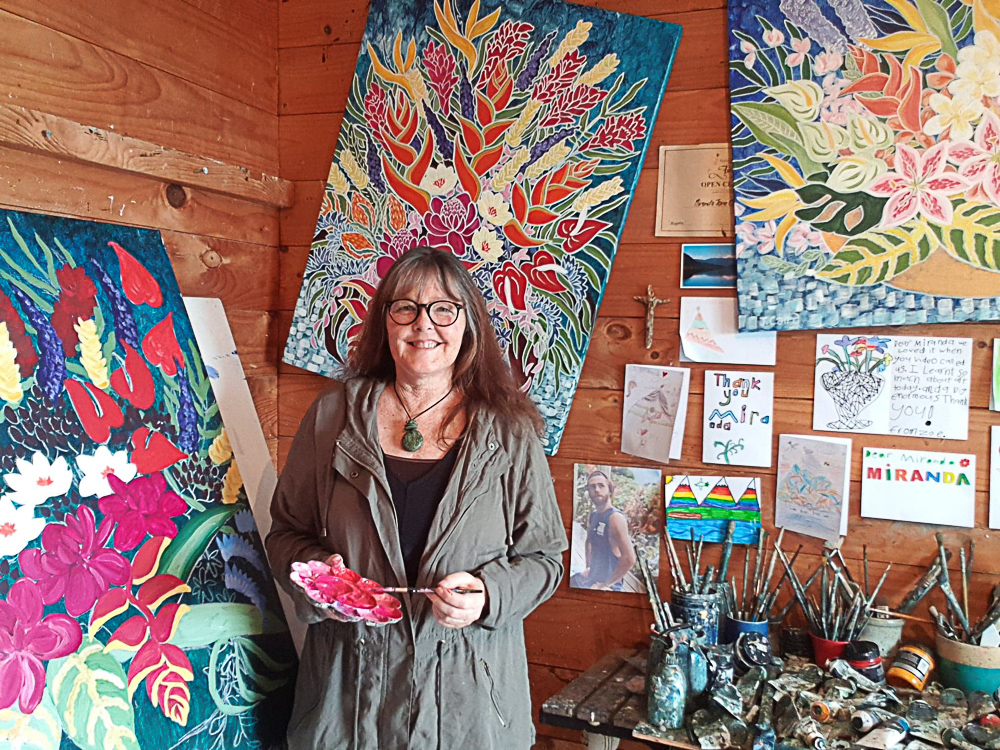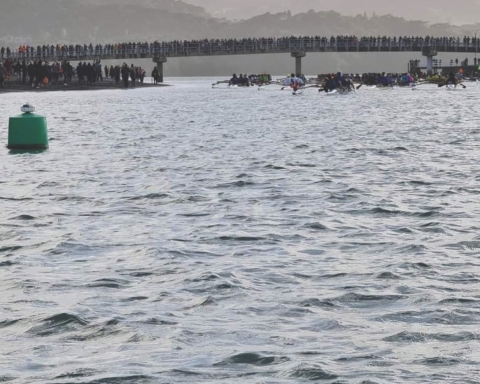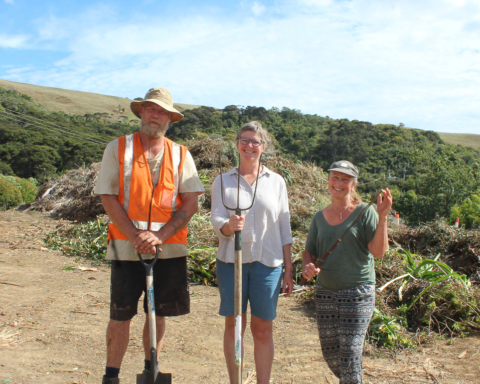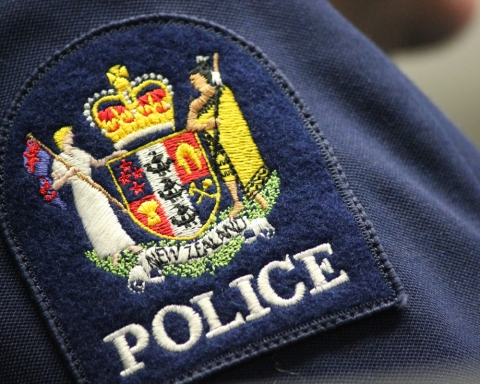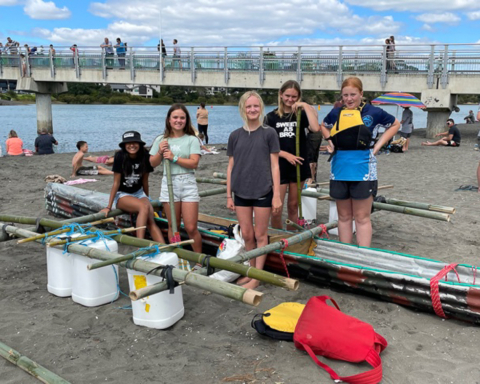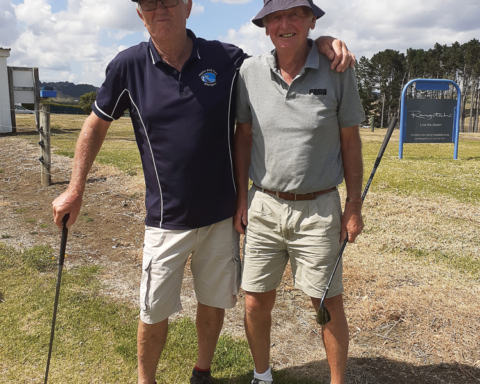Whakamau te titiro
Ki Kawhia moana, ki Kawhia kai, ki Kawhia tangata
Te urunga tapu o Tainui
Whakawhiti atu ra Te Aroaro O Kahu ki Arekehanara
Te haona kaha o Matutaera
E huri to kanohi ki te Tihi o Kakepuku ki te tai whakarunga ko Maniapoto
Ka tika ra tona korero, Tamaki ki raro, Mokau ki runga, Mangatoatoa ki waenganui
Titiro tawhiti ra ko Maungatautari
Te oko horoi I Kemureti e
Whakaheke atu ra ki te riu o Waikato
Ki Ngaruawahia, Turangawaewae mo te ao katoa
Whakatau atu ra te maunga Taupiri
Ko te rua koiwi e
Hoki komuri mai ki Te Hauauru, ko Whaingaroa
E kiia nei tona korero
Tainui A Whiro, ngunguru te ao, ngunguru te po
Au, au, aue ha
Kokiri!
Tuturu o whiti whakamaua! Kia tina
Tina!
Hui e,
Taiki e!
In 1989, the above waiata Whakamau, was composed by E Kui Wini Bidois for Te Kura a Rohe o Whaingaroa. More specifically, 1989 was also the year that Te Roopu Aroha ki te Reo – the then bilingual unit – was born at the kura.
Whakamau, Invites you on a journey to places of significance to those heralding from the Tainui Waka. From Whaingaroa to Kawhia, over the summits of Pirongia and Kakepuku, down to the rohe of Ngaati Maniapoto and over to Maungatautari. The waiata follows the words of Kiingi Tawhiao as he pays homage to Ngaruawahia, the resting place of Kiingi Pootatau, and also to Taupiri Maunga, where past kings sleep, with the spiritual journey returning back here to Whaingaroa with the words: “Tainui-a-Whiro Ngunguru te ao, ngunguru te poo!”
While in recent years, te reo language revitalisation has experienced mostly positive attention, public attitudes and government policies haven’t always reflected the importance of te reo in the education sector.
Te Roopu Aroha ki te Reo was born out of the community’s desire to instill elements of te ao Maaori within their tamariki and it was Due to the strength and integrity of Kuia such as Tuaiwa Eva Rickard and E Kui Wini Bidois and their community that supported the Roopu, that allowed te Roopu to really flourish in Whaingaroa.
“The aroha in the name, Te Roopu Aroha ki te Reo speaks of the love that we embody for te reo.” Said Kylie Hollis, Lead Kaiako in Te Roopu Aroha ki te Reo
Over the past few weeks, Kylie has been instrumental in organising the anniversary celebrations, including going back through the archives and putting together an exhibition of student work that has come from te Roopu over the past 30 years. The exhibition of work is currently on display at Raglan Area School.
Kylie says the focus of Te Roopu Aroha ki Te Reo is empowerment that aakonga/learners are empowered to stand in their own rangatiratanga/autonomy finding strength in their own identity. Learning is founded in the tradition of oratory right from new entrants, students stand and speak in front of their class to build confidence in their speaking abilities.
Looking through the exhibition, you can see a visual representation of the values instilled in the kura, including those of manaakitanga, kaitiakitanga, whakawhānaungatanga and poutama.
Also on display are various student works of harakeke. You can not speak of raranga harakeke at te Kura without mentioning the huge contribution that accomplished weaver Whaea Erangi has made there. Raranga harakeke not only involves textile design but tikanga Maaori. With visual and performing arts being a big part of their learning journey, te Roopu students experience a rich cultural learning journey.
Former student and current kaiako for the Tawera class (years 3-5), Kahurangi Takiari (nee Whitiora) says it was this rich learning experience that drew her back to teach at te Roopu. Having come through the bilingual unit, she left Raglan Area School when she was in Year 9 to attend Nga Taiaatea Wharekura, a full immersion kura in Kirikiriroa, where she was Head Girl in her final year.
For Kahurangi, her learning experience at te Roopu was about being around whaanau and familiar faces. She also recalls some of their research projects around the Maaori Land Wars where they went on trips to visit some of the sites of significance – an experience that not a lot of mainstream students have access to.
“I remember Whaea Lisa and Matua Jay, E Kui and Grace Mataira they were my teachers when I was a student here. Coming back I appreciate home a lot more and it’s opened my eyes to what we have as a community here.” Said Kahurangi.
Te Roopu Aroha ki te Reo 30 year anniversary: Head to Raglan Area School to view the exhibition and join the 30 year anniversary celebrations for the total immersion unit this week.
